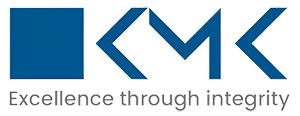GCC vs GBS Explained: Key Differences Between the Two Global Business Models

Introduction
In the global business scenario of today, two business models have gained prominence, which are the Global Capability Center (GCC) model and the Global Business Services (GBS) model. Companies looking to expand or manage operations globally often adopt one of these models. However, stakeholders and customers frequently misunderstand the difference between GCC and GBS. In this blog, let us distinguish between the two models and understand the difference.
What is a GCC?
A GCC is a dedicated offshore unit set up by companies, typically in countries like India, where labor is cheaper and more affordable, to handle core business functions such as Finance and Accounting, IT, HR, analytics, and more. These centers operate as an extension of the parent company and are renowned for delivering cost-effective, high-quality, and scalable support services. Think of a GCC on the following lines:
- It is a dedicated back office in another country, such as India, where the labor is skilled and more affordable.
- It is owned or operated either directly by the parent company or through a white-label outsourcing partner.
- A GCC is tasked with delivering critical business functions. Also, it is aligned with the parent company’s processes, data security protocols, and quality standards.
What Is a GBS?
Contrarily, a global business center is a centralized operating model that integrates and delivers multiple business support services. These services are spread across departments like Finance, HR, IT, Procurement, Customer Service, and others. In simpler terms, a GBS is a way large companies manage their support functions all under one roof. Instead of having separate teams for each function in different locations, a GBS brings them together into one central team. The central team’s function is to serve the entire company, enabling cost savings, increased efficiency, and faster service delivery through tools such as automation and AI. GBS teams often work across different countries and time zones to support global operations. Think of a GBS on the following lines:
- An evolved form of shared services and outsourcing.
- An enterprise-wide model that consolidates different support functions under one umbrella to drive efficiency and standardization.
- Focused not just on cost savings, but also on process optimization, digital transformation, and business impact.
For further understanding, here is a table citing the key differences between the two:
Table 1: Key differences between GCC and GBS
Aspect | GCC (Global Capability Center) | GBS (Global Business Services) |
Purpose | Supports specific core business functions for the parent company | Manages multiple support services under one centralized team |
Ownership | Owned by the company or through a white-label partner | Typically internal to large global companies |
Function Scope | Focused (e.g., Finance, IT, HR, Analytics) | Broad (Finance, HR, IT, Procurement, Customer Service, etc.) |
Operating Model | Functions as an offshore extension of the parent company | Enterprise-wide shared service model |
Delivery Style | Customized, aligned with the company’s brand and standards | Standardized, optimized across departments |
Primary Goals | Quality, cost savings, scalability | Efficiency, digital transformation, and business impact |
Technology Focus | May use automation, but not always core to the model | Heavily focused on automation, AI, and digital tools |
Team Location | Typically offshore (e.g., India) | Global teams supporting all regions and time zones |
Best For | Companies wanting dedicated, branded offshore teams | Large companies needing cross-functional, centralized service units |
Read Also: A Beginner’s Guide to Understanding US GAAP: Why It’s Essential for Financial Reporting
KMK Ventures as your GCC
KMK acts as a white-label Global Capability Center for U.S.-based companies, especially in the Finance & Accounting (F&A) and Tax domains. Here’s how:
- Dedicated teams under your brand
KMK provides exclusive, full-time offshore teams that work as a seamless extension of your in-house finance department—branded under your company name, following your workflows, your tools, and your timelines.
- Domain expertise
KMK specializes in accounting, bookkeeping, tax preparation, payroll processing, reconciliations, and fund accounting, especially for industries like CPG, retail, manufacturing, tech startups, PE-backed firms, and CPA firms.
- Compliance and data security
Operating as a GCC, KMK ensures SOC 2 compliance, data confidentiality, and U.S. GAAP standards, making it a strategic, secure, and compliant outsourcing partner.
- Scalable and cost-efficient
Clients benefit from cost savings of 40–60%, the ability to scale quickly without hiring overhead, and round-the-clock support, thanks to India’s favorable time zone overlap.
- White-labelled delivery
KMK’s teams work behind the scenes, so your clients see your brand and not a third party. This is a key feature of a white-label GCC model.
Conclusion
In summary, both GCC and GBS models help companies streamline operations and reduce costs, but they serve different needs. While GCCs focus on providing dedicated, specialized support, often offshore, GBS models bring multiple business functions together under one centralized setup.
If your business is looking for a reliable offshore accounting and tax support team, a white-labeled GCC model like KMK Ventures can be a wise choice. We operate as an extension of your team—secure, cost-effective, and fully aligned with your brand. Still unsure which model fits your needs? That’s where KMK comes in—we’ll help you choose the right path forward.
About the Author
Bert Wilson serves as our U.S. representative and client success manager, specializing in U.S. tax and accounting services. With expertise in tax compliance, financial reporting, and outsourced accounting solutions, Bert helps clients navigate complex financial challenges. Holding a Master’s degree in accounting and having obtained his C.P.A. license from the state of Colorado, he ensures client expectations are exceeded through tailored solutions and seamless collaboration with our India team. Passionate about building relationships, Bert enjoys both early mornings and outdoor sports, embodying a proactive approach to success
serves as our U.S. representative and client success manager, specializing in U.S. tax and accounting services. With expertise in tax compliance, financial reporting, and outsourced accounting solutions, Bert helps clients navigate complex financial challenges. Holding a Master’s degree in accounting and having obtained his C.P.A. license from the state of Colorado, he ensures client expectations are exceeded through tailored solutions and seamless collaboration with our India team. Passionate about building relationships, Bert enjoys both early mornings and outdoor sports, embodying a proactive approach to success
Let’s Take Our Conversation Ahead
KMK is a top outsourced accounting and tax service provider. We offer end-to-end accounting and tax services for small to mid-sized businesses, with a team of 1000+ professionals, including certified public, chartered, and staff accountants.
USA:
651 N Broad St Suite 205, Middletown, DE 19709, USA
Phone: 310-362-2511
India:
300, Sankalp Square-3B
Sindhu Bhavan Marg,
Ahmedabad, Gujarat 380058
For Career: 91-98240-42996
Developed by Bluele | Copyright © 2026 | KMK Ventures Private Limited. | All Rights Reserved


